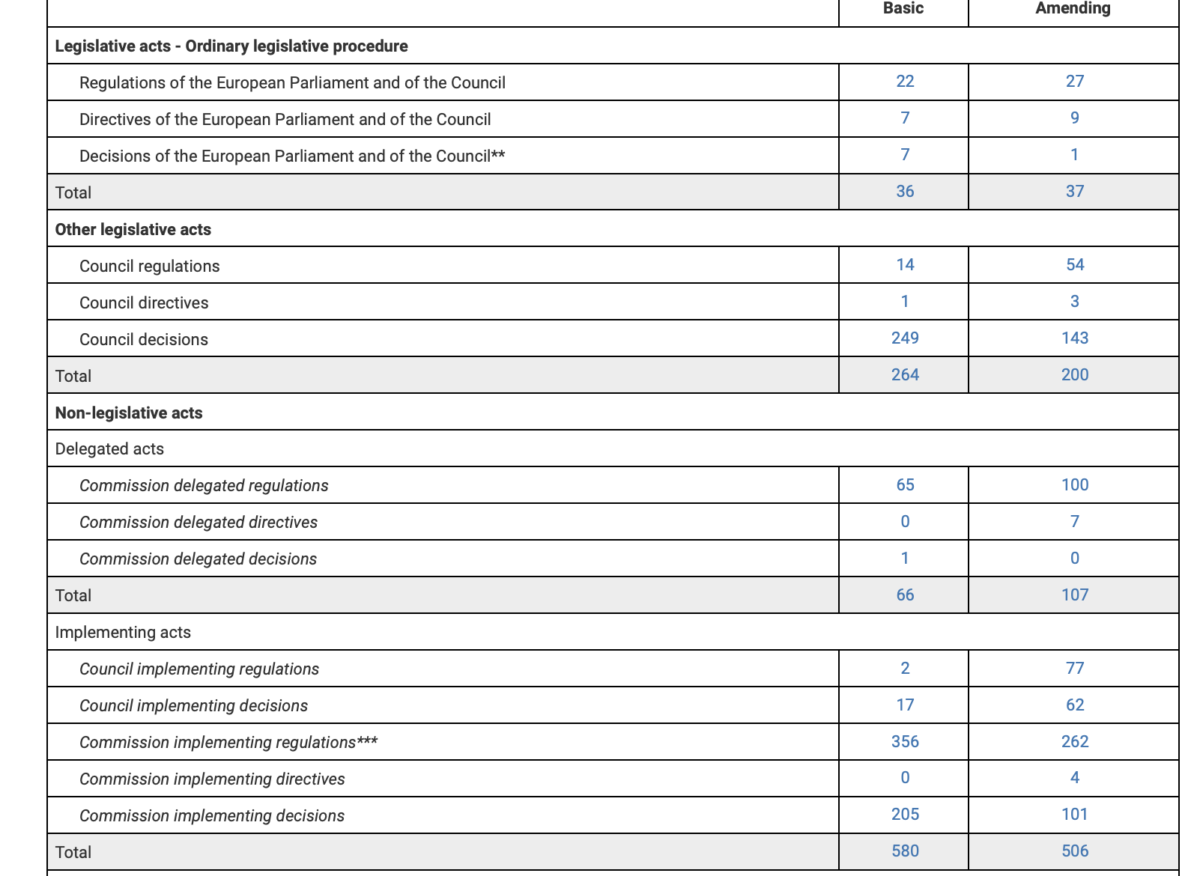I remember folklore children’s tales making the point that lawmaking should be public. Draft laws were posted in the town square giving all – peasants, traders and rich – the opportunity to give feedback. It is something I wish the Commission adopted.
Most EU laws don’t benefit from public feedback. In tandem with this, most initiatives that are not deemed important enough to get public scrutiny through public feedback, are not looked at in depth at the political level in the Commission.
Let’s look at the numbers for 2022.
Ordinary legislative proposals: 65
Delegated act: 173
Implementing acts: 1086

Source: https://eur-lex.europa.eu/statistics/2022/legislative-acts-statistics.html
Let’s dig a little deeper at the 2022 figures.
1. Public Feedback
Delegated acts with public feedback: 29 out of 193 – 15%
Implementing acts: 27 out of 813 – 3%
For example, for DG Environment, it appears that 21 delegated acts were published in 2022. Twice the public got the chance to give their feedback – 10% of the time.
2. Lack of internal scrutiny of proposals
Files that are deemed to be politically sensitive are more likely to get public feedback.
When a desk officer enters an initiative into the planning system, they need to indicate if it is politically sensitive or not.
If they enter ‘no’, this means that there is a lot less internal scrutiny of the file. No need for the Cabinet to look at it and even the Director-General is unlikely to know. Only a diligent desk officer in the Sec-Gen may be able to find out if the wool is being pulled over the political hierarchy’s eyes.
You may think that the Council or the EP will be able to catch things. In 2022, only 3 delegated acts were vetoed (all by the EP).
3. Solutions
There are some practical solutions that could be rolled out tomorrow:
Firstly, an easy solution would be for the European Parliament’s Committees to publish their comitology newsletters. The Commission claim they are confidential so the EP does not publish them. Sadly, only one or two MEPs in each Committee ever read these newsletters.
Secondly, the Commission could just publish the draft proposals online, via the expert groups link on the register.
Caveat
Of course, the figures in the
register may be wrong. There is a discrepancy with the Commission’s own data.
